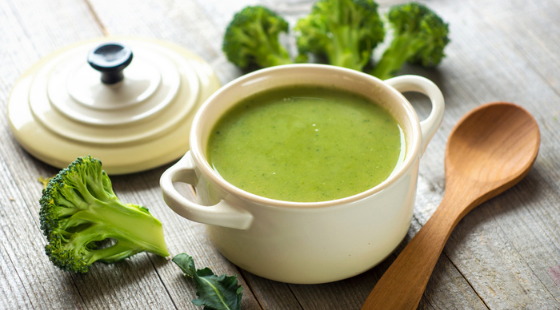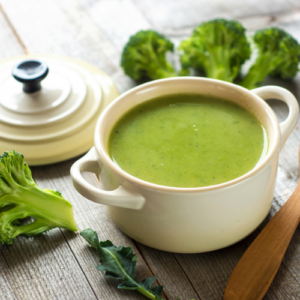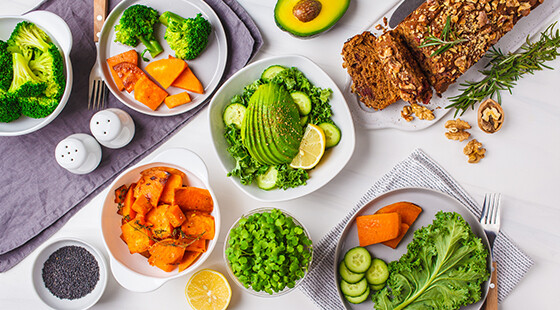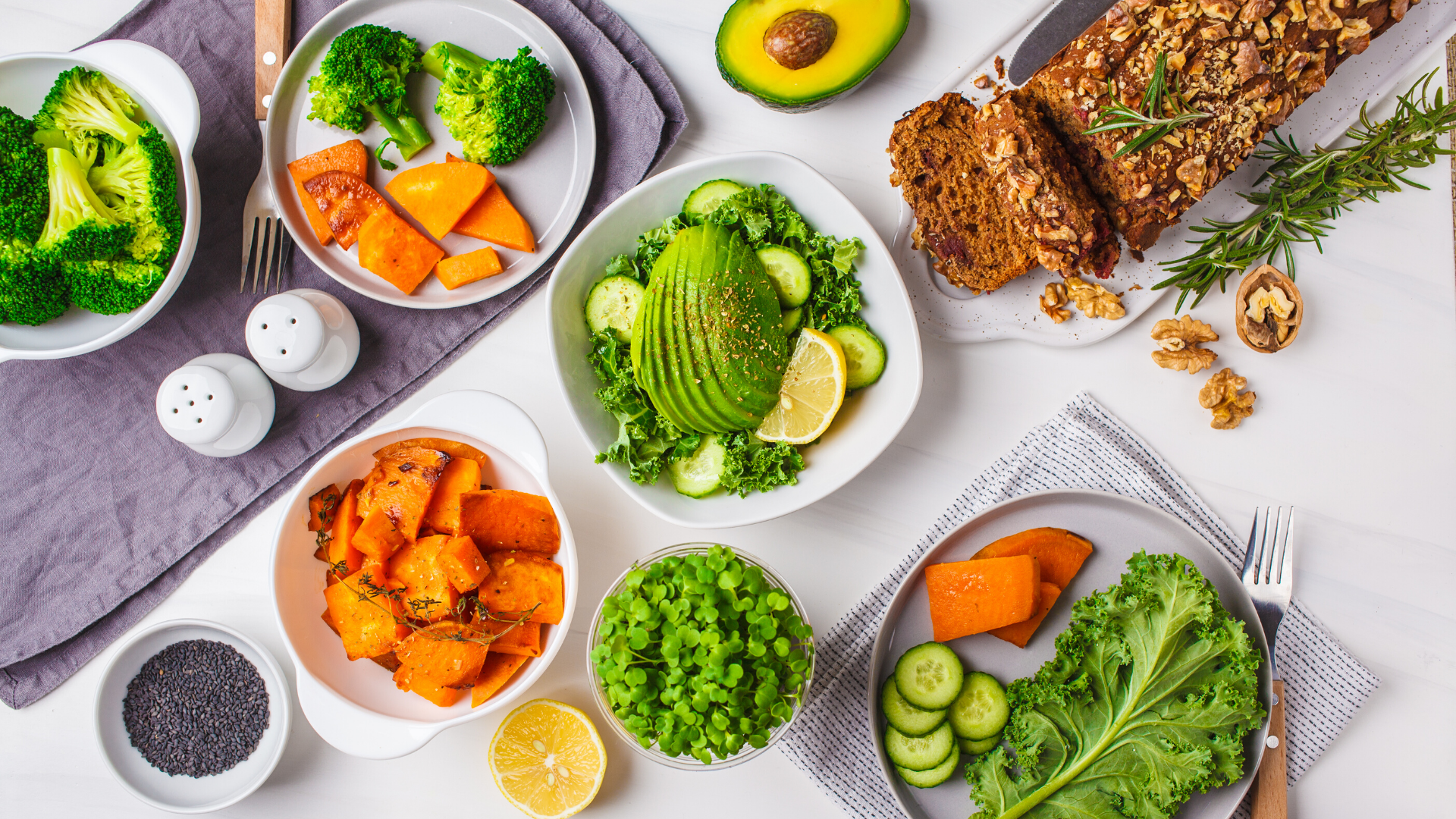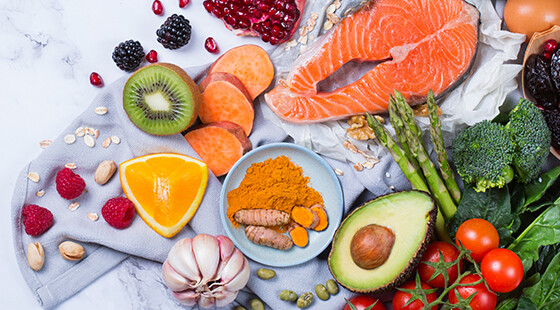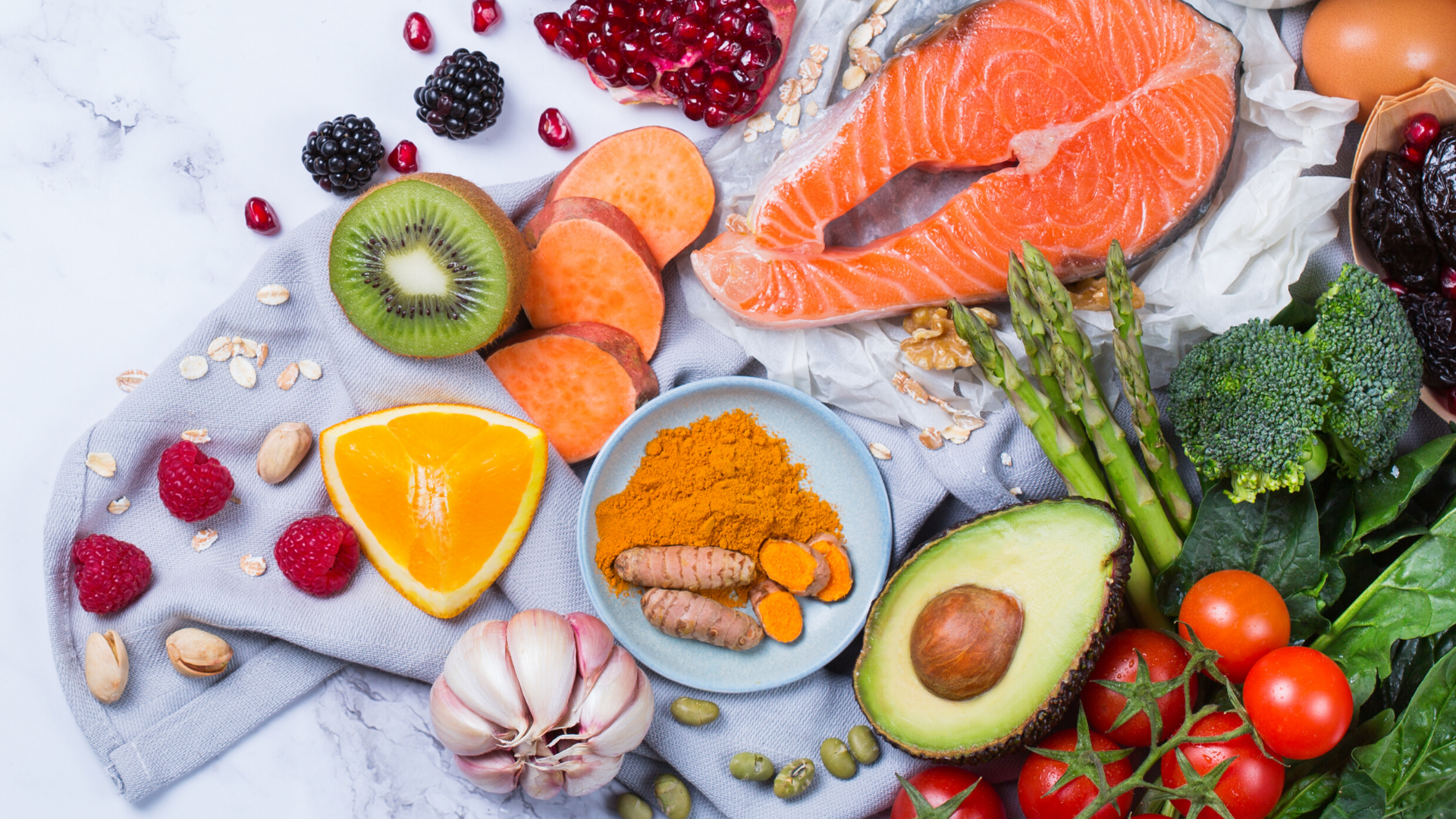There is growing research on the power of foods and the impact on preventing, or even addressing, cancer. This is empowering for people who are at risk or who have cancer!
All of us have “cancerous” cells in our bodies at all times – this is normal. Our bodies are constantly making new cells, and sometimes things go wrong. However, in a healthy body, the number of these cells is small enough that our immune system is able to detect the cancerous cells and destroy them before they have the chance to get out of control. Many of the foods below help to prevent cancer development because they either support the healthy division of new cells (meaning the body makes fewer mistakes), or because they support the immune system in targeting cancer cells, or both!
Let’s explore our top 6 foods that can help us fight cancer.
1. Turmeric
The Indian spice, turmeric, is anti-inflammatory, anti-viral, anti-bacterial, anti-fungal, and can be extremely helpful when it comes to fighting cancer. Studies show that the active compound curcumin, found in turmeric, may help to kill cancer cells and slow tumor growth (1).
The research on the benefits of curcumin with cancer show that it can help protect against every stage of cancer development including initiation, promotion and progression. Curcumin has been shown to block cancer cells from multiplying, and in killing colon, breast, prostate, and melanoma cancer cells as well as slowing or inhibiting tumor growth (2).
A 2009 study found that curcumin can kill many types of cancer cells in multiple ways. Because more than one method is possible, cancer cells are less likely to become curcumin-resistant. Curcumin targets only cancer cells, leaving healthy cells unaffected. This is an important step in potential treatment because chemotherapy drugs kill both healthy cells and cancer cells (3).
Add some turmeric to your next dinner, take a supplement containing curcumin to experience the benefits of this powerful substance, or make a Golden Milkshake. Link to recipe
- https://academic.oup.com/jnci/article/100/9/616/917868
- Krishnaswamy, et al Retardation of experimental tumorgenisis and reduction in DNA adducts by tummeric and curcumin, Nutrition and cancer 1998; 30 (2): 163-6
- https://www.ncbi.nlm.nih.gov/pmc/articles/PMC2758121/
2. Garlic
The American Institute of Cancer indicates that there are many ways in which garlic and its compounds may help prevent cancer. Lab studies show that garlic compounds help with DNA repair, slow the growth of cancer cells, decrease inflammation and prevent the formation of carcinogenic substances in the body. A 2019 study further supported the role of garlic in DNA repair in that (at least in the lab) garlic appeared to enhance the expression of tumor suppressor genes.
Garlic has natural antioxidants and is anti-inflammatory, antibacterial, and antiviral. It contains high levels of sulfur, flavonoids, and selenium all of which are nutrients that support our liver and immune system. Plus, when it is crushed, chopped, or bruised, garlic produces the compound allicin which can help inhibit tumor growth (7).
Garlic contains allyl sulfur and other compounds that slow or prevent the growth of tumor cells. Allyl sulfur compounds, which occur naturally in garlic and onions, make cells vulnerable to the stress created by products of cell division. Because cancer cells divide very quickly, they generate more stressors than most normal cells. Thus, cancer cells are damaged by the presence of allyl sufur compounds to a much greater extent than normal cells (1).
After a review of the global research, AICR’s reports found that eating garlic frequently lowers the risk of colorectal cancers and breast cancer, stomach, colon, lung and prostate (2,3,4,5,6).
Based on the research, eating 2–5 grams (approximately one clove) of fresh garlic per day, or 300 to 1,000 milligrams of garlic extract, reaps benefits.
- https://www.medicinenet.com/script/main/art.asp?articlekey=23591
- https://www.tandfonline.com/doi/full/10.1080/01635581.2019.1651349
- https://www.ncbi.nlm.nih.gov/pmc/articles/PMC4366009/
- https://cancerpreventionresearch.aacrjournals.org/content/6/7/711?sid=179e57a9-3770-409d-84bc-cd83ef816963
- https://www.ncbi.nlm.nih.gov/pubmed/12419792/
- https://www.cancer.gov/about-cancer/causes-prevention/risk/diet/garlic-fact-sheet
- https://cancerres.aacrjournals.org/content/20/4/431
3. Green tea
Green tea is an excellent antioxidant, and studies show the properties of green tea help protect against metastasis of certain kinds of cancer (1). Green tea also contains chemicals called polyphenols that have antioxidant and anti-inflammatory properties. The nutrient EGCG in green tea can help induce cell death in human cancer cells.
A comprehensive review of observational studies found that women who drank had an approximately 20–30% lower risk of developing breast cancer, one of the most common cancers in women (2). Another study observed that men drinking green tea had a lower risk of advanced prostate cancer (3) and an analysis of 29 studies showed that those drinking green tea were around 42% less likely to develop colorectal cancer (4).
- https://www.ncbi.nlm.nih.gov/pmc/articles/PMC3142888/
- https://www.ncbi.nlm.nih.gov/pubmed/19437116
- https://academic.oup.com/aje/article/167/1/71/185454
- https://www.ncbi.nlm.nih.gov/pubmed/28454102
4. Cruciferous Vegetables
Cruciferous vegetables include arugula, bok choy, broccoli, Brussels sprouts, cabbage, cauliflower, kale, radish, and turnips.
All cruciferous vegetables contain glucosinolates, natural substances that break down during chopping, cooking, chewing and digestion into biologically active compounds called isothiocyanates and indoles. In laboratory experiments in rats and mice, these compounds have been found to inhibit cancers of the bladder, breast, colon, liver, lung and stomach. They protect cells from DNA damage by inactivating carcinogens and decreasing inflammation. Plus, they can help inhibit the formation of blood vessels and the migration of tumor cells, two processes that help spread cancer.
Cruciferous vegetables also contain other protective compounds, including carotenoids, plant pigments that may control abnormal cell growth; vitamin C, which acts as an antioxidant, protecting cells and supporting the immune system; and folate, which may also help to maintain healthy DNA and keep cancer-promoting genes turned off (1).
One analysis of 35 studies showed that eating more cruciferous vegetables was associated with a lower risk of colorectal and colon cancer (2).
- https://www.nytimes.com/2018/12/07/well/eat/do-cruciferous-vegetables-really-fight-cancer.html
- https://www.ncbi.nlm.nih.gov/pubmed/23211939
5. Flax seed
Lignans are plant compounds that have antioxidant and estrogen properties, both of which can help lower the risk of cancer and improve health (1).
Some studies have shown that consuming 25 grams of flaxseed a day may reduce tumor growth in breast and prostate cancer. It can also reduce the body’s production of estrogen, so its benefits have been linked to breast cancer prevention. In fact, consuming flaxseed can enhance the effectiveness of tamoxifen, a drug commonly used to prevent breast cancer recurrence (2).
The American Institute of Cancer Research reported that in a one month-long trial of about 30 post-menopausal women with newly diagnosed breast cancer, daily flaxseed consumption decreased signs of cancer cell growth. In several studies of healthy women consuming flaxseed daily, estrogen levels decreased or shifted to more of a relatively inactive form, resulting in less estrogen in the form believed to promote breast cancer growth.
Additionally, according to a Canadian study involving more than 6,000 women, those who eat flax seeds are 18% less likely to develop breast cancer (3). Further studies show benefits with colon, prostate and lung cancer (4,5)
- https://www.ncbi.nlm.nih.gov/pubmed/17301257
- https://www.mdanderson.org/publications/cancerwise/3-nutrients-cancer-survivors-should-know-flaxseed-omega-3s-iron.h00-159305412.html
- https://www.ncbi.nlm.nih.gov/pubmed/23354422
- https://www.ncbi.nlm.nih.gov/pubmed/15134976
- https://onlinelibrary.wiley.com/doi/full/10.1111/j.1541-4337.2009.00105.x
6. Berries
The researchers, led by Dr. Minna Rahnasto-Rilla, found that one type of anthocyanin, known as cyanidin, found in wild bilberry, raspberry, and cranberry, appeared to reduce the activity of cancer-causing genes and boost the activity of cancer-stopping genes (1).
Studies show that several antioxidants in berries, including anthocyanins, ellagic acid, and resveratrol, may reduce cancer risk (2,3,4). Specifically, animal and human studies suggest that berries may protect against cancer of the esophagus, skin, lung, mouth, breast, and colon (5, 6,7,8,9).
Most berries also contain antioxidants, fiber, and vitamin C which can all support a healthy immune system and liver function which is important to creating a terrain within the body that is not favourable to cancer growth.
It’s ideal to consume berries daily, with attention to consuming a variety of different berries. Berries can be put in smoothies, on salads, with plain Greek yoghurt, on oatmeal, or just eaten on their own. Be sure to choose organic to avoid unnecessary exposure to pesticides and other chemicals, which are known carcinogens.
- https://www.medicalnewstoday.com/articles/321410#Berries,-cancer-genes,-and-the-future
- https://www.ncbi.nlm.nih.gov/pubmed/25788047
- https://www.sciencedirect.com/science/article/abs/pii/S0963996911002572
- https://www.ncbi.nlm.nih.gov/pubmed/16084717
- https://www.ncbi.nlm.nih.gov/pubmed/19139022
- https://www.ncbi.nlm.nih.gov/pubmed/24222110
- https://www.ncbi.nlm.nih.gov/pubmed/22571764
- https://www.ncbi.nlm.nih.gov/pubmed/22823889
- https://www.ncbi.nlm.nih.gov/pubmed/21123457
Those are our top 6 cancer-preventative foods – turmeric, garlic, green tea, flaxseed, cruciferous vegetables and berries!
We’ve done some of the legwork for you do pack more of these protective foods into your diet and are offering our free 1-day cancer preventative meal plan for download.
If you want to take things a step further, we would love to meet with you one-on-one to complete a thorough assessment to help determine your risk of developing cancer and help educate you about diet and lifestyle changes you can make to reduce your risk.




